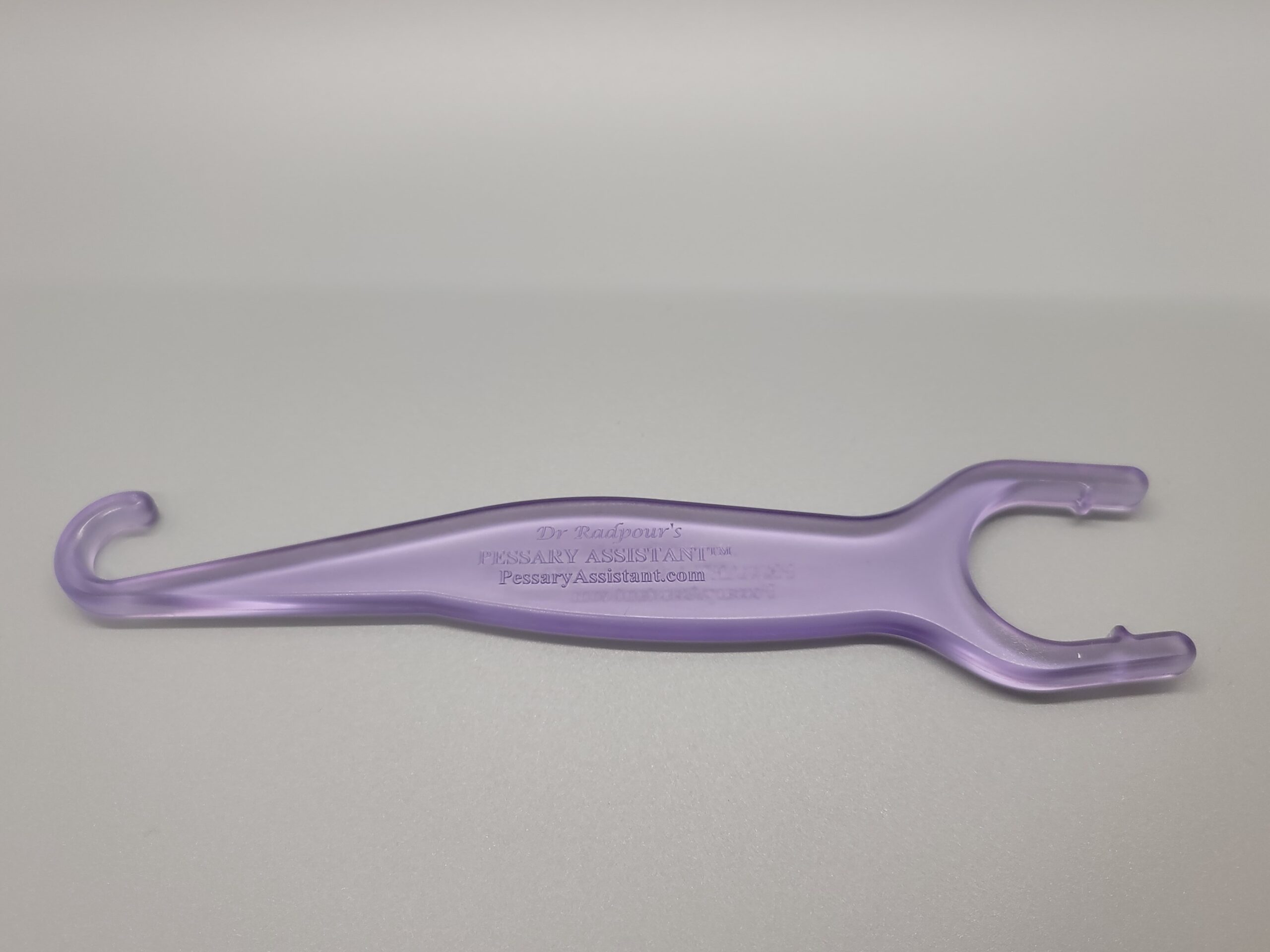Pessary Assistant
Pessary Assistant
SKU: DrR-PA01With Patients, Gynecologists, Urologists, Physical Therapists, & Physiologists in mind, OB/GYN Chris Radpour, MD from Tennessee developed the Pessary Assistant to help with the placement and removal of most types of ring pessaries. These include Ring pessaries with and without support, Incontinence pessaries, Knob pessaries, Oval pessaries, and other similar types. Each Pessary Assistant is injection-molded with premium FDA-approved medical-grade plastic and is safe when contacted with your skin.
With Patients, Gynecologists, Urologists, Physical Therapists, & Physiologists in mind, OB/GYN Christopher Radpour, MD designed the Pessary Assistant to help with the placement and removal of most types of ring pessaries. These include Ring pessaries with and without support, Incontinence pessaries, Knob pessaries, Oval pessaries, and other similar types. Each Pessary Assistant is injection-molded with premium FDA-approved medical-grade plastic, so you can be sure it is safe when contacted with your skin.
Patients with weak hand muscles or arthritis, will find the Pessary Assistant especially helpful because it features two sides: 1) an upside down “U” shaped “Pessary Assist” side which holds a folded ring pessary in preparation for placement, (click here for the video) and 2) a “c” shaped “Pessary Hook” side which helps retrieve a ring pessary from the vaginal canal (click here for the video.)
Although a ring pessary can be left in place for weeks or even months, the ideal situation is to teach a patient to place it in the morning and remove it at night. Leaving a pessary out when a person sleeps allows “healing” or “rest” time for the vaginal walls, reducing the risk of erosions that might be caused by prolonged “rubbing” of the vaginal sidewalls or cervix by the pessary.
Use of ring pessaries for Pelvic Organ Prolapse has increased over the last decade. Pessary Assistant gives many patients the dexterity and confidence they need to place and remove their ring pessaries themselves, oftentimes sparing them the need for an extra doctor’s visit.
How Do I Clean My Pessary Assistant?
Use Chemical Sterilization Solution like Virex TP or Cidex (This is the preferred method from the Manufacturuer):
- Wash/Rinse instrument(s) with soap & warm water, being sure to remove any blood or debris with a soft brush
- Immerse clean/dry instrument(s) completely in the chemical sterilization solution
- Cover the chemical sterilization solution tray with secure lid
- Soak instrument(s) for 12 minutes at 20°C for high level disinfection
- Rinse instrument(s) thoroughly
- Dry instrument(s) thoroughly
- Disinfected instrument(s) should be used immediately or stored in a manner to minimize recontamination
Autoclave Sterilization (less preferred because the purple color of the device will turn “cloudy” under extreme heat):
Ensure no items have been left in Autoclave by previous users
- Clean Strainer
- Ensure >100 mL of liquid present for effective sterilization
- Place instrument(s) into “autoclave bag” with “indicator tape” & place on rack
- Close door
- Set & Run autoclave at 121°C for 15 minutes
- Use thermal protection to retrieve instrument(s)
| Weight | 0.093744 lbs |
|---|---|
| Dimensions | 1 × 1 × 1 in |
MSDS
Click on the link to download the MSDS on the Pessary Assistant.






